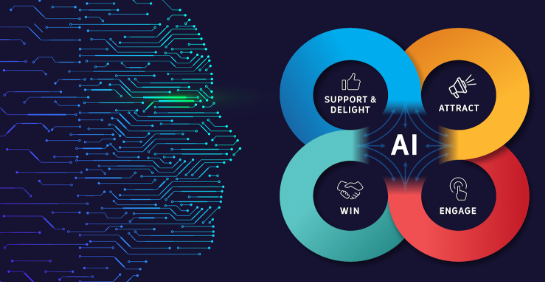While Artificial Intelligence offers significant advantages in marketing, it also presents various challenges that businesses must address to use it effectively. Understanding these obstacles is crucial for marketers aiming to adopt AI successfully and responsibly.
Data Privacy and Security
AI relies heavily on collecting and analyzing user data. However, increasing concerns about data privacy, along with regulations like GDPR, make it challenging for marketers to balance personalization with privacy. Mishandling data can lead to loss of customer trust and legal issues.
High Implementation Costs
Although AI tools are becoming more accessible, some advanced solutions still require significant investment in software, infrastructure, and skilled personnel. Small businesses may find it difficult to afford the upfront costs or justify the ROI in the short term.
Lack of Human Touch
AI can automate communication, but it often lacks empathy and contextual understanding. This can lead to robotic or impersonal customer interactions, which may affect brand perception and engagement.
Inaccurate or Biased Data
AI systems are only as good as the data they are trained on. If the data is biased or outdated, AI-generated insights can be misleading. This can result in flawed marketing decisions, targeting the wrong audience or promoting ineffective campaigns.
Complexity and Skills Gap
Implementing AI in marketing requires specialized knowledge in data science, machine learning, and analytics. Many marketing teams lack the technical skills or resources to fully integrate and manage AI systems effectively.
Over-Reliance on Automation
While AI improves efficiency, excessive reliance can hinder creativity and human intuition. Marketers risk becoming too dependent on automation, missing out on innovative and emotionally driven ideas that resonate with audiences.
Ethical Concerns
Using AI to influence consumer behavior raises ethical questions. Manipulative targeting, deceptive messaging, or over-surveillance can harm the brand’s integrity and damage customer relationships if not handled with care.
Integration Issues
Combining AI with existing marketing systems and workflows can be complex. Compatibility issues or poor implementation may disrupt processes instead of enhancing them.
Conclusion
Despite its powerful benefits, AI in marketing comes with challenges that require careful planning, ethical consideration, and ongoing optimization. Marketers who address these concerns head-on will be better equipped to unlock AI’s full potential without compromising trust, creativity, or compliance.







Leave feedback about this